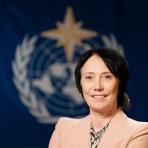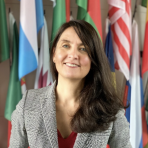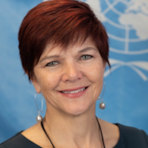Socioeconomic benefits of weather, climate, and water services


Dubai, United Arab Emirates
The ability to predict and prepare for changes in weather and climate allows societies to improve resilience and economic prosperity. From the issuing of early warnings of extreme events to day-to-day forecasts, National Meteorological and Hydrological Services (NMHSs), as providers of weather, climate, and water information and services, can save lives and reduce economic loss and damage in vulnerable sectors, such as agriculture, energy, disaster risk reduction, etc.
Many governments, particularly in developing countries, however, underestimate the socioeconomic benefits that improved weather, climate, and water services can bring to their societies, which can result in insufficient investments and budget allocations for NMHSs. In the face of growing exposure to weather-, climate-, and water-related extremes, more investments in under-funded hydrometeorological infrastructure and services are urgently needed. National governments, international development and financial institutions need to step up and support NMHSs by substantially increasing investment levels over the next decades.
This side event will bring together diverse stakeholders to highlight the crucial, yet often under-recognized role that National Meteorological and Hydrological Services play in advancing adaptation and mitigation. The panel discussion will focus on the following key questions:
- What are the risks if support for NMHSs as a key enabler is not mainstreamed into plans, budgets, policies, and strategies advancing climate-resilient development?
- Why do we need to tackle the climate crisis and achieving the SDGs simultaneously?
- How can socioeconomic benefit assessments of weather, climate, and water services support decision-making and long-term planning?
- What are key partnerships to leverage the synergies?
Programme
Introduction of the panelists – Dr Victoria Alexeeva, Senior Economic and Societal Impacts Officer, WMO
Opening remarks – Dr Elena Manaenkova, Deputy Secretary-General, WMO
What are the socioeconomic benefits that National Meteorological and Hydrological Services (NMHSs) can bring to the society, and why are they key to advancing adaptation and mitigation?
- Dr Ladislaus Chang’a, Acting Director-General, Tanzania Meteorological Authority, Permanent Representative of the United Republic of Tanzania with WMO and IPCC Vice-Chair
- Dr Arlene Laing, Coordinating Director of the Caribbean Meteorological Organization and Permanent Representative of the British Caribbean Territories with WMO (remotely)
How are extreme weather events and climate change setting back progress towards achieving the Sustainable Development Goals (SDGs), and why do we need to tackle the climate crisis and achieving the SDGs simultaneously?
- Mr Sanny Ramos Jegillos, Senior Adviser, Disaster Risk Reduction, United Nations Development Programme (UNDP)
- Dr Chantal Line Carpentier, Head, Trade, Environment, Climate Change, and Sustainable Development, Division on International Trade and Commodities, United Nations Conference on Trade and Development (UNCTAD)
How can socioeconomic benefit assessments of investments into weather, climate, and water services support decision-making and long-term planning?
- Dr Bapon Fakhruddin, Water Resources Management Senior Specialist, Division of Mitigation and Adaptation, Green Climate Fund (GCF)
- Ms Helen Bye, Head of International Engagement, Met Office, United Kingdom of Great Britain and Northern Ireland
Q&A – What are the concrete steps we can take now, and who are the main partners to get involved?
Moderated and wrap-up by Dr Victoria Alexeeva, Senior Economic and Societal Impacts Officer, WMO
Speakers









